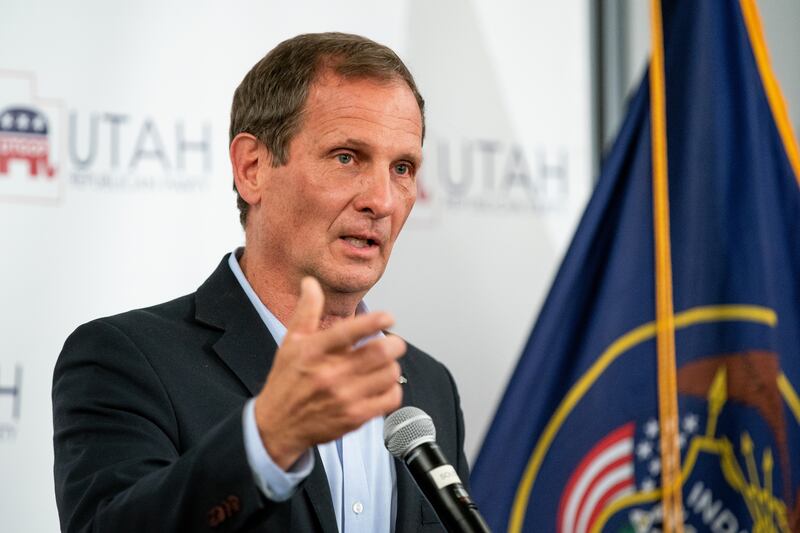The confirmation of the Electoral College vote will take place in a joint session of Congress on Wednesday. Two Utah congressmen, Chris Stewart and Burgess Owens, have said they will vote against confirmation.
We disagree with their objections and the conclusion that this will increase voters’ confidence in the strength of the electoral process. It has little chance of convincing doubters of anything.
More worrisome is the risk to the Electoral College itself. Opponents of the system will use 2020, and Wednesday’s congressional actions, as fodder to move to a purely popular national vote. Such a move is bad for the republic and for the state of Utah.
The United States of America must send a certain message to the citizens of this nation and the world that the democratic processes and the elections of this constitutional republic remain sound and secure.
We agree with Utah Rep. John Curtis and Sen. Mike Lee, each of whom has questioned Congress’ authority to, as Curtis says, “debate the merits of each state’s election laws or the validity of the electors they choose.” Lee, in a letter to colleagues, said, “there is no authority for Congress to make value judgments in the abstract regarding any state’s election laws or the manner in which they have been implemented.”
In this country, elections are primarily state concerns. Sen. Mitt Romney has likewise weighed in regarding the dangerous approach some members of Congress are taking.
Risking the future of state election laws and the Electoral College on claims that haven’t passed muster, at any level, is unwise in the extreme. It echoes William Shakespeare’s question, “For one sweet grape who would the vine destroy?” A single election, that has been decided, is not worth risking the entire system.
The attorney general at the time of the election, William Barr, and members of the Elections Infrastructure Government Coordinating Council and other committees overseeing the process have said the election was free from any irregularities that might have affected the outcome.
The latter group of committees issued a statement calling the election “the most secure in American history.”
To this is added the dozens of lawsuits contesting various state election results, none of which has succeeded, and none of which presented credible evidence of fraud extensive enough to overturn results.
More importantly, Wednesday’s vote is intended to be a ratification of each state’s separate election for president, and the certifications of those elections as conducted under the laws of those states. Each governor, acting independently, has individually certified results and the selected electors from his or her state. In Georgia, several recounts were held, each resulting in Joe Biden as the winner.
Simply put, the election of Nov. 3 has been carefully vetted and adjudicated. What remains to be decided is how many representatives and senators will enable an outgoing president, who refuses to concede defeat, to use this electoral process for loyalty tests, fundraising and future prospects.
In the United States, the concept of federalism allows great deference to states and their ability to govern and handle their own affairs within the broad confines of the Constitution, as enumerated in the 10th Amendment. Often referred to as states’ rights, this concept is central to the strength of the nation and ought to be more closely guarded, especially by those who value conservative principles.
Owens has said it isn’t logical to think Donald Trump could receive 74 million individual votes, a figure much higher than any previously victorious candidate, and lose. Joe Biden received 81.2 million votes.
Stewart said the unsuccessful lawsuits were decided on “technical” issues, not on the merits of fraud allegations. He wants a 10-day audit to satisfy the concerns of some voters and provide them more confidence in the outcome of the election.
Some voters will not be convinced. Those who believe the election was fraudulent have had plenty of opportunities to competently make their case. Just because members of Congress can do something doesn’t mean they should. And in this case, they shouldn’t. Continuing this reckless pursuit for partisan political purposes needs to end.
To preserve the integrity of our institutions of government, the Electoral College process and the future of the republic, it is time for Americans and elected representatives to finally lay the 2020 election to rest. Joe Biden is America’s next president.

